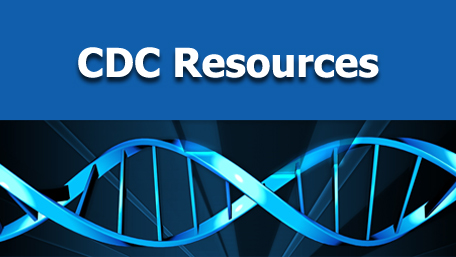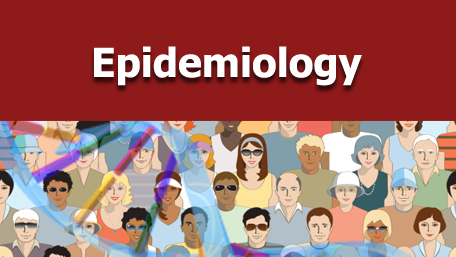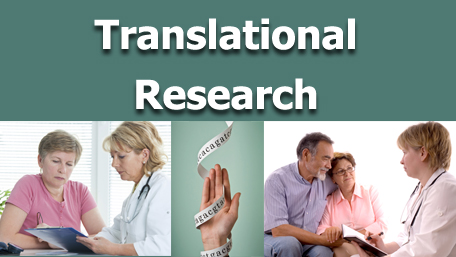J Psychosom Res. 2016 Oct;89:39-45. doi: 10.1016/j.jpsychores.2016.08.005. Epub 2016 Aug 8.
Psychosocial outcomes and counselee satisfaction following genetic counseling for hereditary breast and ovarian cancer: A patient-reported outcome study.
Oberguggenberger A1, Sztankay M2, Morscher RJ3, Sperner-Unterweger B2, Weber I4, Hubalek M5, Kemmler G2, Zschocke J4, Martini C2, Egle D5, Dünser M6, Gamper E2, Meraner V2.
Abstract
OBJECTIVE:
METHODS:
RESULTS:
CONCLUSION:
Copyright © 2016 Elsevier Inc. All rights reserved.
KEYWORDS:
Genetic counseling; Hereditary breast and ovarian cancer; Late effects; Patient satisfaction; Psychological distress; Psychooncology
- PMID:
- 27663109
- DOI:
- 10.1016/j.jpsychores.2016.08.005
- [PubMed - in process]
Public Health Genomics Knowledge Base (v1.2)


Hereditary Breast and Ovarian Cancer
This week is hereditary breast and ovarian cancer (HBOC) week. For information on HBOC check out our new web pages and CDC BringYourBrave campaign website.

Last Updated: Sep 28, 2016
- Psychosocial outcomes and counselee satisfaction following genetic counseling for hereditary breast and ovarian cancer: A patient-reported outcome study.
Oberguggenberger Anne et al. Journal of psychosomatic research 2016 Oct 8939-45 - BRCA Share: A Collection of Clinical BRCA Gene Variants.
Beroud Christophe et al. Human mutation 2016 Sep - Hereditary breast and ovarian cancer: successful systematic implementation of a group approach to genetic counselling.
Benusiglio Patrick R et al. Familial cancer 2016 Sep - The Impact of an Expanded Genetic Testing Program and Selective Oophorectomy on the Incidence of Ovarian Cancer in West Pomerania.
Menkiszak J et al. Clinical genetics 2016 Sep - Age at menarche and age at natural menopause in East Asian women: a genome-wide association study.
Shi Jiajun, et al. Age (Dordrecht, Netherlands) 2016 9 - Frequency of germline PALB2 mutations among women with epithelial ovarian cancer.
Kotsopoulos Joanne, et al. Familial cancer 2016 9 - Occult and subsequent cancer incidence following risk-reducing surgery in BRCA mutation carriers.
Zakhour Mae, et al. Gynecologic oncology 2016 9 - The RAD51C exonic splice-site mutations c.404G>C and c.404G>T are associated with familial breast and ovarian cancer.
Neidhardt Guido, et al. European journal of cancer prevention : the official journal of the European Cancer Prevention Organisation (ECP) 2016 9 - Gene panel sequencing in familial Breast/Ovarian Cancer patients identifies multiple novel mutations also in genes others than BRCA1/2.
Kraus Cornelia, et al. International journal of cancer 2016 9 - Overall survival in patients with platinum-sensitive recurrent serous ovarian cancer receiving olaparib maintenance monotherapy: an updated analysis from a randomised, placebo-controlled, double-blind, phase 2 trial.
Ledermann Jonathan A, et al. The Lancet. Oncology 2016 9 - In honor of Ovarian Cancer Awareness Month
G Hurst, Cure today, Sepetember 2016 - Molecular determination of the clonal relationships between multiple tumors in BRCA1/2-associated breast and/or ovarian cancer patients is clinically relevant.
Geurts-Giele Willemina R R, et al. Modern pathology : an official journal of the United States and Canadian Academy of Pathology, Inc 2016 9 - Finding all BRCA pathogenic mutation carriers: best practice models.
Hoogerbrugge Nicoline et al. European journal of human genetics : EJHG 2016 Sep S19-26 - Detection of ATM germline variants by the p53 mitotic centrosomal localization test in BRCA1/2-negative patients with early-onset breast cancer.
Prodosmo Andrea, et al. Journal of experimental & clinical cancer research : CR 2016 0 (1) 135 - Functional mechanisms underlying pleiotropic risk alleles at the 19p13.1 breast-ovarian cancer susceptibility locus.
Lawrenson Kate, et al. Nature communications 2016 0 12675


- Human (53)
- Pathogen (0)

- Human (1508)
- Pathogen (0)

- Human (229)
- Pathogen (0)


- Huamn (112)
- Pathogen (0)





















.png)












No hay comentarios:
Publicar un comentario